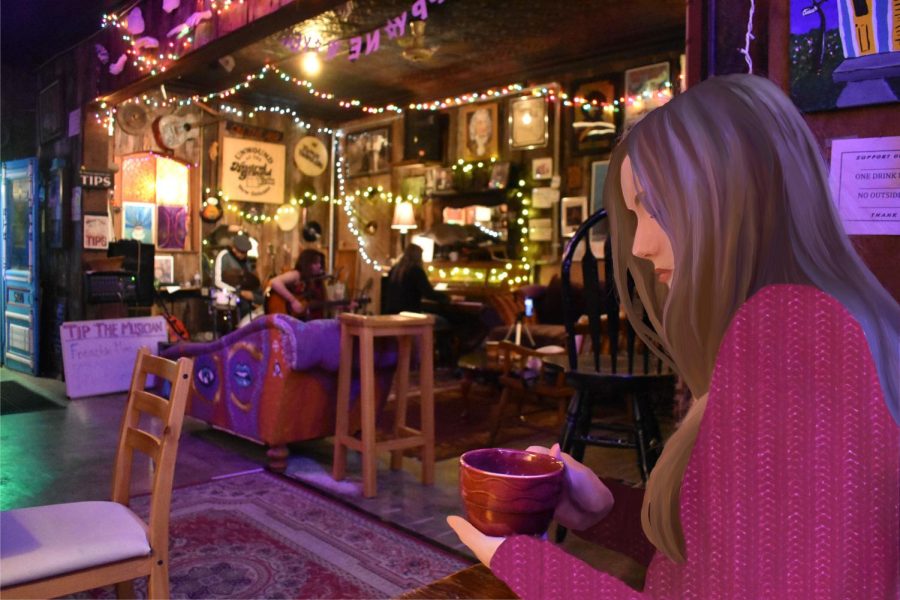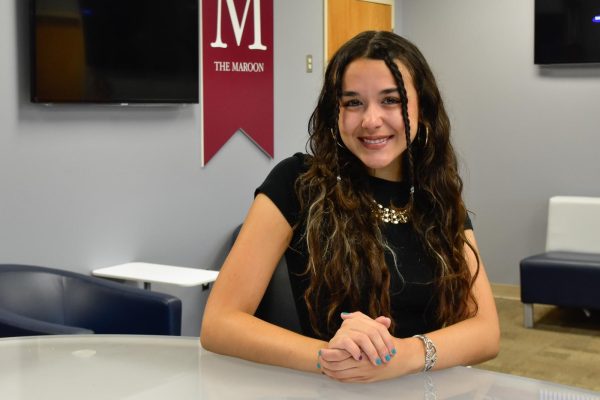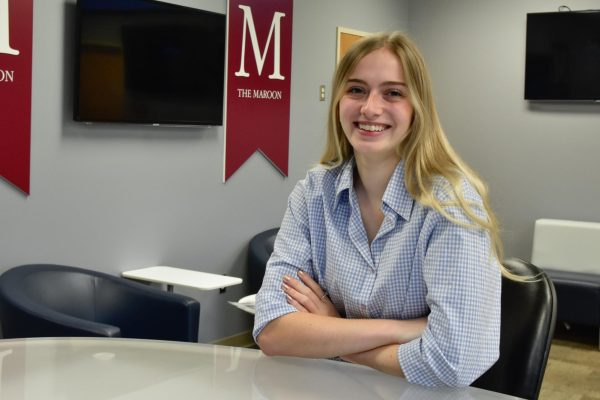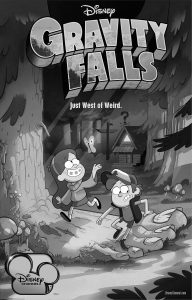Sober students tell their stories
Photo illustration of a student enjoying a cup of tea at Neutral Ground Coffeehouse. The Uptown coffeehouse serves as a non-alcoholic hub for locals and Loyola students to socialize and listen to live music.
January 29, 2023
College stereotypes may leave some questioning if sobriety as a student is sustainable but students, like Loyola alumnus Grayson Gibbs, said sobriety is infinitely more fulfilling than dropping $50 at The Boot.
Gibbs has been sober since Oct. 3, 2022, and said he found that asking and receiving help was easier than he expected.
“My substance use was starting to dominate all other fields of my life,” Gibbs said. “I watched my life slowly deteriorate, until I got help,” Gibbs said.
Gibbs said he believed the consequences of his disease rendered him a burden, but he learned people are enthusiastic to help others discover a new way of living.
“My world doesn’t have to revolve around the same three bars and vodka crans, because this city is a beautiful, diverse, and embracing community with something to offer for everybody,” Gibbs said.
Sobriety doesn’t hinder a social life, Gibbs said. He feared he’d miss out, but said that is a common misconception about sobriety. Gibbs said that his weekends consist of cooking, shopping, dancing, and watching live music.
“You can make anything fun while being truly present and sober,” Gibbs said.
Neuroscience sophomore Owen Alexander said he grew up around parents with addictive personalities. He saw it become unmanageable, which he said dissuaded him from ever trying substances.
“Take care of your body. There’s a lot of good that can come from sobriety as far as bettering how you feel,” Alexander said.
Alexander said being sober has been positive for his relationships. He said he often goes to jazz clubs, where drinking isn’t the main aspect of social interaction.
“It’s pushed me in a direction of circles of supportive people who make healthy choices,” Alexander said. “The people I’ve met while being sober and in sober circles have been some of the greatest people I’ve ever met in my life.”
Loyola public relations senior Craig Beatty said he has been sober since Dec. 26, 2019.
“I got sober at 21 and thought I could never have a social life without alcohol and drugs, especially here in New Orleans,” Beatty said. “But quickly I found people who were enjoying life without drugs and I was astonished.”
The best way to figure out if sobriety can work is to give it a chance, Beatty said.
“Even if you’re not sure you want to be sober, try things out and talk to sober people. Sobriety has never made anyone’s life worse,” Beatty said. “Forget what you know about sobriety, recovery groups, and recovery programs because representation in the media is inaccurate.”
Jacob Goldberg, manager of the Tulane recovery community and licensed addiction counselor, said that one in seven 18 to 25-year-olds meet the criteria for a substance use disorder. He said there are solutions to substance abuse, and plenty of resources available. Goldberg manages the student recovery meeting open for Tulane and Loyola students each Tuesday at 7 p.m. in the Warren Lounge.
Goldberg added that a house on Calhoun Street will serve as a dedicated recovery community center for students and will be opening soon. The center will have a diverse spectrum of support meetings with social activities, service, a safe space, and recovery housing, Goldberg said.
“The students who thrive the most in their recovery journey are of service to their communities and prioritize recovery over all else,” Goldberg said.
He said the best practice is to abstain from drugs and alcohol.
“You can still have the college experience, enjoy life, and have fun without substances,” Goldberg said.










Kathleen Ordoyne • Feb 4, 2023 at 11:44 am
Wonderful. Young people need assistance to safe themselves before (no matter how much education they have or how smart they are) this sickness ruins their lives forever. So glad Loyola has this program!!!
Bella • Feb 1, 2023 at 2:46 pm
Swag article
Callie Honeycutt • Jan 31, 2023 at 2:39 pm
Such a good story! Beautiful writing Violet!
Marcelle • Jan 30, 2023 at 12:16 am
Great read! I got sober at 31 and I wish I knew when I was younger that there are others in college age people that can have without drinking.